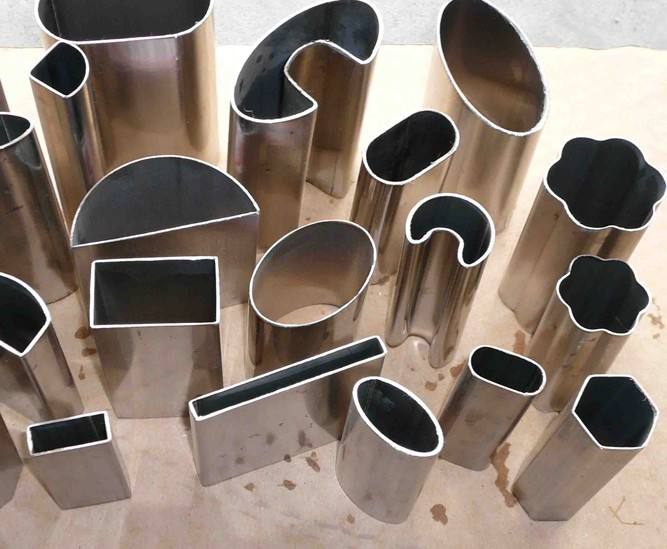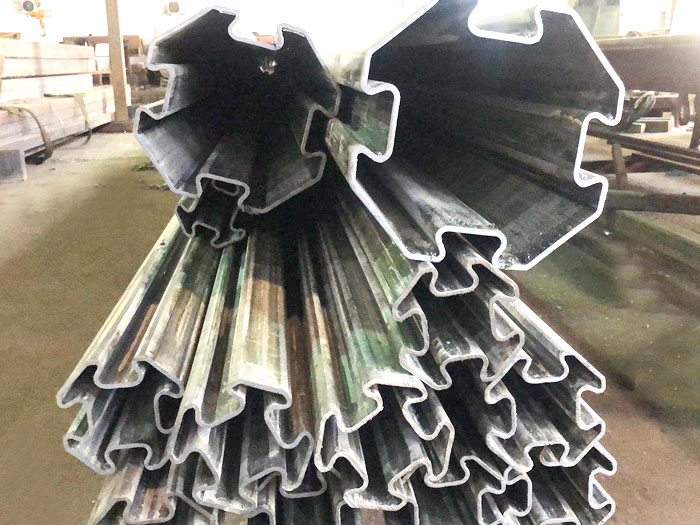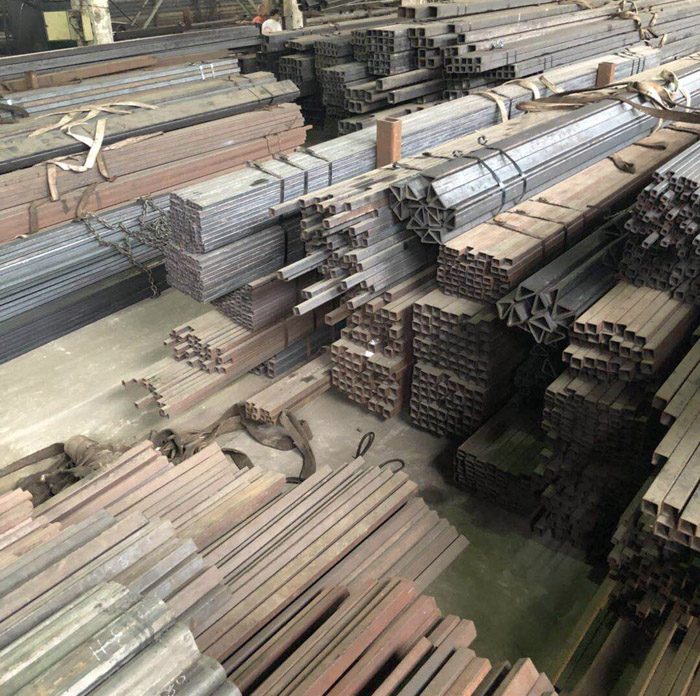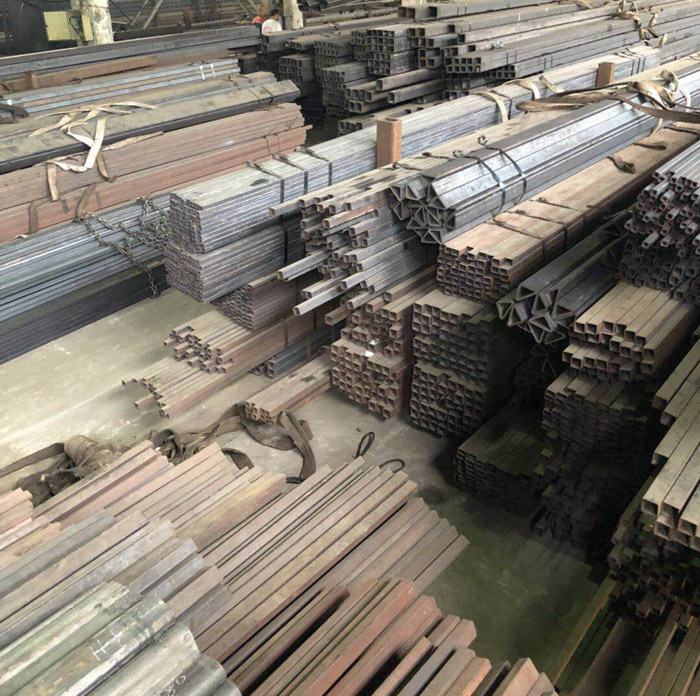无缝异型管的切削加工性:无缝异型钢管材料的切削加工性系指金属接受切削加工的能力,也是指金属经过加工而成为合乎要求的工件的难易程度。通常可以切削后工作表面的粗糙程度、切削速度和刀具磨损程度来评价金属的切削加工性。
Cutting machinability: Cutting machinability of seamless special-shaped steel pipe refers to the ability of metal to accept cutting, and also refers to the degree of difficulty that metal is processed to become a required workpiece. Usually, the machinability of metal can be evaluated by the roughness of the working surface, cutting speed and tool wear after cutting.
无缝异型管的锻性:锻性是无缝异型管材料在承受锤锻、轧制、拉拔、挤压等加工工艺是会改变形状而不产生裂纹的性能。它实际上是金属塑性好坏的一种表现,材料塑性越高,变形抗力就越小,则锻性就越好。锻性好坏主要决定于金属的化学成分、显微组织、变形温度、变形速度及应力状态等因素。
Forgetability: Forgetability is the performance of seamless special-shaped pipe material that can change shape without cracking under hammer forging, rolling, drawing, extrusion and other processing technologies. In fact, it is a manifestation of metal plasticity. The higher the plasticity of material, the smaller the deformation resistance and the better the forging ability. The forging property is mainly determined by the chemical composition, microstructure, deformation temperature, deformation speed and stress state of the metal.
无缝异型管的顶锻性:顶锻性是指无缝异型管承受打铆、镦头等的顶锻变形的性能。金属的顶锻性,是用顶锻试验测定的。
Forging property: Forging property refers to the ability of seamless special-shaped pipe to withstand upsetting deformation such as riveting and upsetting. The upsetting property of metals is determined by upsetting test.
无缝异型管的热处理工艺性:热处理是指金属或合金在固态范围内,通过一定的加热、保温和冷却方法,以改变金属或合金的内部组织,而得到所需性能的一种工艺操作。热处理工艺就是指金属经过热处理后其组织和性能改变的能力,包括淬硬性、淬透性、回火脆性等。
Heat treatment technicality: heat treatment refers to a kind of technological operation in which metal or alloy can change the internal structure of metal or alloy through certain heating, heat preservation and cooling methods in the solid range to obtain the required properties. Heat treatment process refers to the ability of metal to change its structure and properties after heat treatment, including hardenability, hardenability, temper embrittlement and so on.
无缝异型管的铸造性:无缝异型管材料能用铸造方法获得合格铸件的能力称为铸造性。铸造性包括流动性、收缩性和偏析倾向等。流动性是指液态金属充满铸模的能力,流动性愈好,愈易铸造细薄精致的铸件,收缩性是指铸件凝固时体积收缩的程度,收缩愈小,铸件凝固时变形愈小。偏析是指化学成分不均匀,偏析愈严重,铸件各部位的性能愈不均匀,铸件的可靠性愈小。
Castability: The ability of seamless special-shaped pipe material to obtain qualified castings by casting method is called castability. Castability includes fluidity, shrinkage and segregation tendency. Fluidity refers to the ability of liquid metal to fill the casting mould. The better the fluidity, the easier it is to cast thin and delicate castings. Shrinkage refers to the degree of volume shrinkage during solidification. The smaller the shrinkage, the smaller the deformation during solidification. Segregation refers to the uneven chemical composition, the more serious the segregation, the more uneven the performance of each part of the castings, and the less reliable the castings are.
无缝异型管的焊接性:焊接性是指无缝异型管在特定结构和工艺条件下通过常用焊接方法获得预期质量要求的焊接接头的性能。焊接性一般根据焊接时产生的裂纹敏感性和焊缝区力学性能的变化来判断。
Weldability: Weldability refers to the performance of welded joints of seamless special-shaped pipes which can obtain expected quality requirements through common welding methods under specific structural and technological conditions. Weldability is generally judged by crack sensitivity and mechanical properties of weld zone.
无缝异型管的冲压性:冲压性是指无缝异型管经过冲压变形而不发生裂纹等缺陷的性能。为保证制品的质量和工艺的顺利进行,用于冲压的金属板、带等必须具有合格的冲压性能。
Stamping property: Stamping property refers to the property of seamless special-shaped pipe which is stamped and deformed without cracks and other defects. In order to ensure the quality of products and the smooth progress of the process, the metal sheets and strips used for stamping must have qualified stamping performance.
无缝异型管的冷弯性:无缝异型管材料在常温下能承受弯曲而不破裂的性能,称为冷弯性。出现裂纹前能承受的弯曲程度愈大,则材料的冷弯性能愈好。
Cold bending property: Seamless special-shaped pipe material can withstand bending without breaking at room temperature, which is called cold bending property. The greater the bending degree before cracking, the better the cold bending performance of the material.






